12 Side Effects Of Mushrooms On Your Health (Must Know)
Over-indulging in this crowd-favorite delicacy may have some severe consequences.
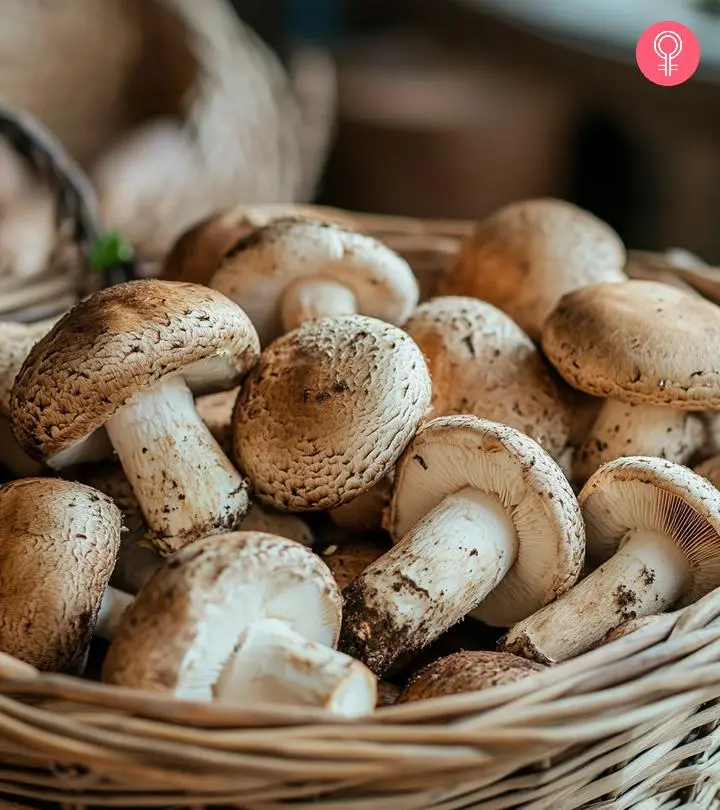
Image: Midjourney/ StyleCraze Design Team
Mushrooms are a favorite of many! They come in various shapes, sizes, and varieties as well! And we must know to identify the edible ones to avoid the side effects of mushrooms that are non-edible or harmful when consumed in large amounts. Basically a fungus, mushrooms grow in the wild in hot and humid conditions. There are many varieties that may seem familiar but might not be suitable for human consumption. So while you may like the soft, mushy meaty texture of mushrooms, you must be careful to choose the right variety for you. Also, make sure to clean them properly and cook them through, to avoid any digestive complications. Read on to be aware of the adverse side effects of mushrooms to relish those delicious mushroom preparations without any worry!
 Know The Flip Side: Mushrooms
Know The Flip Side: MushroomsShort-Term Effects
Fatigue, stomach discomfort, headache, anxiety, dizziness, and skin irritation.
Long-Term Effects
Consumption of poisonous wild mushrooms can cause organ damage and failure, and hence are fatal.
Drug Interactions
The psychedelic element of psilocybin in magic mushrooms might negatively interact with psychiatric medications.
When To See A Doctor
If you experience severe symptoms of mushroom poisoning, such as excessive stomach discomfort, vomiting and diarrhoea, or irreparable skin allergies.
In This Article
12 Side Effects Of Mushrooms
While most people know about the many mushrooms benefits, they also need to be aware of its side effects! According to a study published in the journal Clinical Toxicology, about 8.8% of 8,953 mushroom-exposed patients succumbed to a suspected cyclopeptide-mushroom poisoning. The findings were based on the data collected by the National Poison Data System over a period of 11 years (2008 – 2018). While mortality is the most severe side effect of mushroom consumption, there are other potential adverse effects to watch out for.
The following points give the 12 side effects caused by mushroom consumption:
1. Tiredness
Some of the individuals may experience fatigue after consuming mushrooms.
You may also feel discomfort and unenergetic. This side effect has been common among many people (1). This side effect might make a few individuals, skip them in the daily routine.
2. Stomach Upset

Eva De Angelis, Dietitian Nutritionist, says, “Some mushrooms contain high amounts of simple carbs that are difficult to digest, such as raffinose and mannitol. As these carbs enter the large intestine undigested, they are fermented by our gut microbiota, producing gas, which contributes to digestive problems in some people, particularly those with IBS.”
Some of the mushrooms’ side effects also create stomach problems among many. In some people, diarrhea has been a problem in eating mushrooms (2). The other stomach problems, which one might experience, are vomiting, and cramping. This study on mushroom toxicity revealed that early-onset symptoms (within 2 hours of ingestion) are generally mild, causing nausea (96.2%), vomiting (79.7%), and abdominal pain (22.8%). Delayed symptoms (after 6 hours) can lead to severe outcomes like liver, kidney, or multi-organ failure. Among 35 patients, most exhibited early-onset gastrointestinal issues.
The most common side effect of eating mushrooms is nausea. It is caused by a chemical named psilocybin, which is present in most mushroom species. Psilocybin has sensory hallucinogenic properties and may also cause users to experience unexplained feelings of euphoria (3).
 Did You Know?
Did You Know?3. Absentmindedness
An individual might also be in a state of hallucination.
Hallucination is the state in which an individual becomes absent-minded. Due to being psychoactive, mushrooms may result in altered perception of reality after consumption (4). These hallucinatory and mind-altering effects can be compared to the effects of psychedelic synthetic drugs like LSD. The individuals experience the trip within twenty minutes of consumption. After half an hour to forty minutes, the effect reaches its peak. Some may also hear sounds louder than normal in their stomach. Some of them also have a transcendental or spiritual experience after consuming it.
4. Skin Allergies

Mushrooms are known to make the immune system strong. While in some people, especially those allergic to mushrooms, they may also result in skin rashes and skin irritations (5). Some also experience nose bleeding, dry nose, and dry throat, and other problems when they are taken in excess amounts.
Jonas, an Australian fungi blogger, documents a story about eating raw Ramaria (coral mushroom), leading to a severe allergic reaction. He writes, “My skin became covered in tiny blisters and itched and hurt like mad. It did bring on an attack of Shingles as well which made matters worse. It was worse around my glands and warm bits so my armpits, groin, back of the neck and my fingers and toes were worse affected. The blisters continued for about a week then my skin peeled like a snake (i).”
 Trivia
Trivia5. Tingling Sensation
After 20 to 30 minutes of consumption of mushrooms, some people feel happy and excited.
Then, along with the feeling of being excited, they also experience a tingling sensation in their whole body (1). After some time people also experience being depressed.
6. Avoiding During Pregnancy

Some doctors suggest women to avoid consuming mushrooms during breast feeding and pregnancy. Though no serious side effects are reported, it is better to stay on the safe side by avoiding them.
7. Headache
Certain drugs cause headaches as side effects, which wears off after some time. But some people experienced such headaches for more than a day, after consuming mushrooms (6).
8. Anxiety

Mushrooms also cause anxiety in certain people, which ranges from mild to extreme levels, and puts them in a state of deep introspection. A study found that psilocybin affects certain brain pathways, causing short-term anxiety (7). These side effects worsen when mushrooms are taken in high doses.
9. Mental Illness
Mental illness is the most serious side effect caused by mushrooms in certain people. Anecdotal evidence suggests that mental disorders, such as immense fear and panic attacks are experienced after taking mushrooms. However, such occurrences are rare and mostly associated with magic mushrooms (8).
10. Dizziness

Some people have also reported serious dizziness after a few hours of consumption (9). Mushrooms might also cause confusion and mood changes when consumed in high dosages. Though not scientifically proven, anecdotal evidence suggests that consumption of mushrooms in high doses might not be a good idea for those with low blood pressure.
11. Weight Gain
Mushrooms may make one feel hungry after intake. They contain tryptamines (10). These are chemicals that act like amphetamines (an addictive drug) and may stimulate one’s appetite. Mushrooms also contain ergot alkaloidsi Chemical substances produced by several species of fungi that cause vomiting, numbness, and muscle pain. (11). In some animal studies, these substances had caused vasoconstriction (narrowing of the blood vessels) (12). This may eventually lead to elevated blood pressure levels and potential weight gain.
12. Kidney Failure
In general, edible varieties of mushrooms such as button, portobello, and shiitake are not known to have adverse effects on the kidneys when consumed in reasonable amounts as part of a balanced diet.
However, there are certain types of mushrooms, commonly referred to as wild or exotic mushrooms, which can be toxic. Research has shown that there are different types of mushroom poisoning that can lead to acute kidney injury, depending on the duration of exposure (13). For example, the Amanita genus of mushrooms contains species that are highly toxic and can lead to kidney failure as well as other organ damage (14).
Key Takeaways
- A favorite for many people, mushrooms can cause some serious health issues if consumed wrongly.
- While consuming mushrooms, it is important to identify them as edible as some wild varieties can even cause poisoning.
- Certain mushrooms can cause anxiety, hallucinations, tiredness and other cognitive symptoms.
- Mushrooms are also known to cause stomach problems, nausea, and skin allergies in some people.
A Word Of Caution
Though the mushrooms are rich in iron, zinc and other nutrients, it should be taken in limited quantities in our daily routine. Of the 1, 40,000 species of mushrooms available in the world today, only 10 percent are safe and edible. Some of the poisonous mushrooms are amanita pantherina, entoloma and chlorophyllum molybdites. The list of Shiitake mushrooms benefits is long, but it should be consumed in adequate amounts to avoid adverse reactions.
- Emergency Guidance
It is essential to take immediate action if eating mushrooms causes negative side effects. Get medical attention right away if you or someone else has symptoms like nausea, vomiting, abdominal pain, disorientation, confusion, or trouble breathing after consuming mushrooms. Additionally, you may think that puking out the mushrooms will help. However, unless directed by a medical professional, never force yourself to vomit.
Besides, the following tips might also help you use mushrooms safely and avoid side effects.
Tips For Safe Mushroom Consumption
- If you are new to eating mushrooms, start with a small portion to see how your body reacts before eating more.
- Eating raw mushrooms can be harder to digest and may cause stomach discomfort. Cook them thoroughly to avoid this.
- Mixing mushrooms with alcohol or other substances can increase the risk of negative effects.
- Drink plenty of water before, during, and after eating mushrooms to help with digestion and overall well-being.
- Make sure you are in a calm, comfortable place, especially if consuming psychedelic mushrooms. Having a friend with you is also a good idea.
- Always buy mushrooms from a trusted store or supplier. Wild mushrooms can be dangerous, so, avoid picking them yourself unless you are an expert.
Sometimes not knowing which mushroom to use can also cause issues. So, you need to be careful while picking the right mushrooms. Keep reading to learn more.
Identifying Safe Vs. Harmful Mushrooms
- Common safe mushrooms like white button mushrooms, portobello, shiitake, and maitake are easy to find in grocery stores. These are generally safe to eat.
- Wild mushrooms can be poisonous. Many toxic mushrooms look similar to safe ones, so, don’t pick or eat wild mushrooms unless you are an expert.
- Safe mushrooms often have smooth, white gills and a solid, firm texture. Toxic mushrooms might have bright colors, odd shapes, or a foul smell.
- If you are ever unsure about a mushroom, use a reliable guide or app to help identify it. Don’t rely on guesswork.
If you suspect you have eaten a harmful mushroom, contact a poison control center immediately for advice.
Infographic: Other Serious Side Effects Of Mushrooms You Should Know
Mushrooms are a delectable ingredient that makes a healthy addition to your diet. However, excess consumption of mushrooms can result in adverse health complications. We have compiled a list of a few other serious side effects you should be aware of. Check out the infographic below to know more. Illustration: StyleCraze Design Team
Mushrooms provide us with nutrients and can contribute to our overall well-being. However, overindulgence may lead to a few health problems. The side effects of mushrooms range from stomach upsets to the development of a tingling sensation. Your mental health may be affected and panic attacks may occur more frequently. Your anxiety may be worsened, and you may feel dizzy or have headaches. Mushrooms may trigger skin irritation or allergic reactions as well. Never consume mushrooms from the wild before confirming whether they are edible or not. Limiting or avoiding its consumption can help avoid these complications. If you experience severe symptoms such as persistent nausea, dizziness, skin reactions, or anxiety, it is important to consult with a healthcare provider.
Frequently Asked Questions
Do mushrooms reduce belly fat?
Eva De Angelis says, “While mushrooms are low-calorie foods that are ideal for weight loss, they do not directly reduce belly fat.
There is no single food that can directly help you lose belly fat. Yet, more nourishing foods are high in bioactive compounds and can help boost our metabolism and thus burn more calories. As mushrooms are high in fiber and protein, they keep us fuller for longer, so a little goes a long way. Also, mushrooms can help with fat loss by improving blood glucose regulation.”
Is mushroom good for the brain?
“There is plenty of evidence to support the neuroprotective role, such as aiding with mild cognitive impairment, a precursor to Alzheimer’s disease. They are high in bioactive health-promoting compounds like vitamins, minerals, and antioxidants. Two of the main antioxidants found in mushrooms, ergothioneine and glutathione, have been linked to those wonderful neuroprotective properties. Including them in your regular diet can help you lose weight while also lowering your risk of incident dementia and improving your memory and focus.” says Eva De Angelis.
Are mushrooms better for you, raw or cooked?
According to Eva, “They are both good choices, each with pros and cons. Due to the higher chitin content, some people may find raw mushrooms more difficult to digest.”
She adds, “Another risk of eating raw mushrooms that have not been thoroughly rinsed is the presence of harmful bacteria or heat-liable toxins that can cause an allergic reaction. Cooking mushrooms, for example, reduce the content of several heat-sensitive bioactive compounds, such as B vitamins. Cooked mushrooms, on the other hand, are easily digestible.”
Are mushrooms safe to take every day?
Yes, mushrooms are safe to consume every day in moderation. They are loaded with many nutrients that can promote overall health and reduce the risk of heart disease, diabetes, and cancer.
Can mushrooms cause liver damage?
Yes, mushrooms containing amatoxin may cause liver damage if they are consumed in large quantities. These toxins are majorly found in wild mushrooms (15).
Who should not take mushrooms?
Pregnant women and people with gastrointestinal or digestive system issues should limit the consumption of mushrooms to avoid any negative effects. Those with mushroom allergy symptoms should steer clear of them. Always consult your doctor before consuming mushrooms.
Can mushrooms make you sick?
Yes, consuming mushrooms contaminated with harmful bacteria can make you sick.
Illustration: Serious Side Effects Of Mushrooms On Your Health (Must Know)
_illustration.jpg.webp)
Image: Stable Diffusion/StyleCraze Design Team
While mushrooms offer nutrition and health benefits, they may also have potential side effects. Get the full scoop on this interesting fungi in this enlightening video. Watch the video to know how safe these shrooms really are.
Personal Experience: Source
StyleCraze's articles are interwoven with authentic personal narratives that provide depth and resonance to our content. Below are the sources of the personal accounts referenced in this article.
i. A severe allergic reaction to a Rameria species;https://kingfishermushrooms.wordpress.com/2018/03/03/a-sever-allergic-reaction-to-a-rameria-species/
References
Articles on StyleCraze are backed by verified information from peer-reviewed and academic research papers, reputed organizations, research institutions, and medical associations to ensure accuracy and relevance. Read our editorial policy to learn more.
- Mushroom Poisoning with Symptoms of Pantherina Syndrome: A Case Report
https://www.researchgate.net/publication/303979941_Mushroom_Poisoning_with_Symptoms_of_Pantherina_Syndrome_A_Case_Report - Mushrooms: The velvety poison
https://www.researchgate.net/publication/283526941_Mushrooms_The_velvety_poison - Hallucinogenic mushrooms
https://pubmed.ncbi.nlm.nih.gov/16401965/ - Laetiporus sulphureus causing visual hallucinations and ataxia in a child
https://www.researchgate.net/publication/19773375_Laetiporus_sulphureus_causing_visual_hallucinations_and_ataxia_in_a_child - Mushroom allergy
https://pubmed.ncbi.nlm.nih.gov/3278649/ - Psilocybin dose-dependently causes delayed transient headaches in healthy volunteers
https://www.ncbi.nlm.nih.gov/pmc/articles/PMC3345296/ - Psilocybin induces acute anxiety and changes in amygdalar phosphopeptides independently from the 5-HT2A receptor
https://pmc.ncbi.nlm.nih.gov/articles/PMC11039401/ - Harm potential of magic mushroom use: a review
https://pubmed.ncbi.nlm.nih.gov/21256914/ - Toxicological Profiles of Poisonous Edible and Medicinal Mushrooms
https://www.ncbi.nlm.nih.gov/pmc/articles/PMC4206786/ - Hallucinogenic mushrooms drug profile
https://www.euda.europa.eu/publications/drug-profiles/hallucinogenic-mushrooms_en - Ergot Alkaloids are Also Mushroom Poisons
https://www.ncbi.nlm.nih.gov/pmc/articles/PMC8245863/ - Activities and Effects of Ergot Alkaloids on Livestock Physiology and Production
https://www.mdpi.com/2072-6651/7/8/2801 - Mushroom Poisoning Presenting With Acute Kidney Injury and Elevated Transaminases
https://www.ncbi.nlm.nih.gov/pmc/articles/PMC6551513/# - Amanita phalloides poisoning-induced end-stage renal failure
https://pubmed.ncbi.nlm.nih.gov/19473620/# - Flagellate dermatitis after consumption of Shiitake mushrooms
https://www.ncbi.nlm.nih.gov/pmc/articles/PMC4112260/
Read full bio of Reda Elmardi
- Eva De Angelis is a Dietitian Nutrionist from Argentina. She specializes in food and nutrition education, and healthy cooking. She has a Bachelor’s degree in Human Nutrition and Dietetics from ISalud University, a postgraduate certificate in Nutrition, Gastronomy, and Health, a culinary diploma, and an intermediate-level technical degree in Food Science.
 Eva De Angelis is a Dietitian Nutrionist from Argentina. She specializes in food and nutrition education, and healthy cooking. She has a Bachelor’s degree in Human Nutrition and Dietetics from ISalud University, a postgraduate certificate in Nutrition, Gastronomy, and Health, a culinary diploma, and an intermediate-level technical degree in Food Science.
Eva De Angelis is a Dietitian Nutrionist from Argentina. She specializes in food and nutrition education, and healthy cooking. She has a Bachelor’s degree in Human Nutrition and Dietetics from ISalud University, a postgraduate certificate in Nutrition, Gastronomy, and Health, a culinary diploma, and an intermediate-level technical degree in Food Science.
Read full bio of Tanya Choudhary
Read full bio of Ravi Teja Tadimalla
Read full bio of Moksha Gandhi









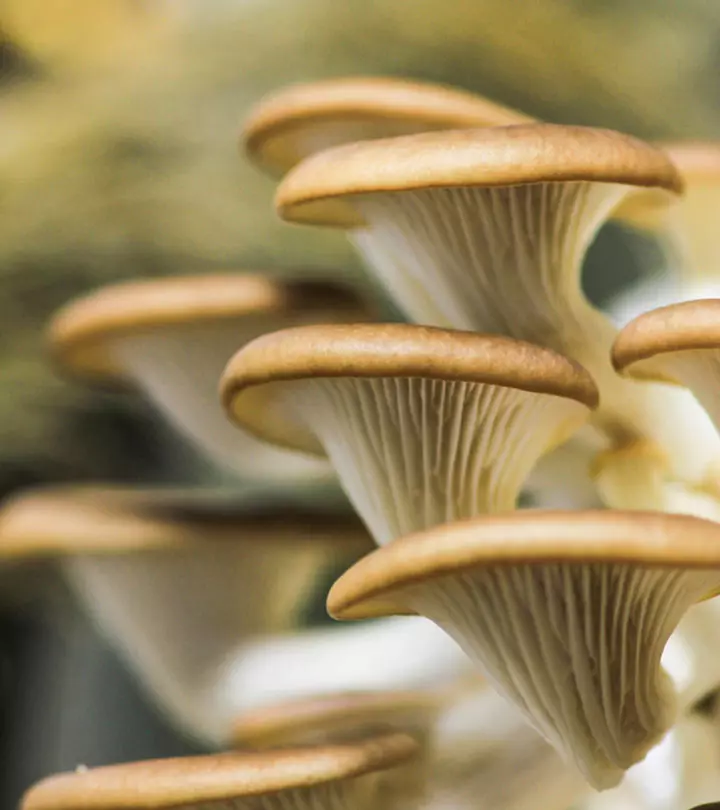



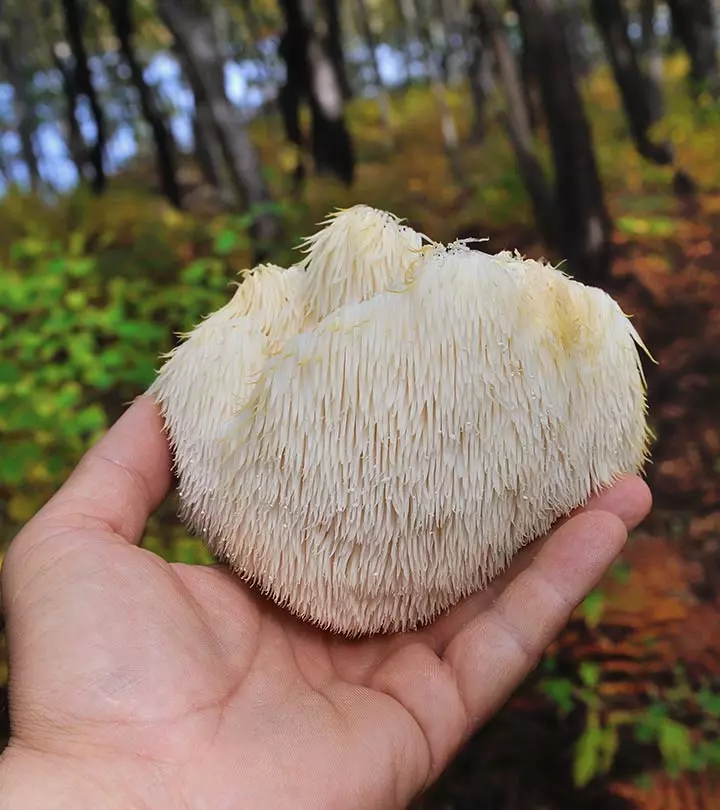







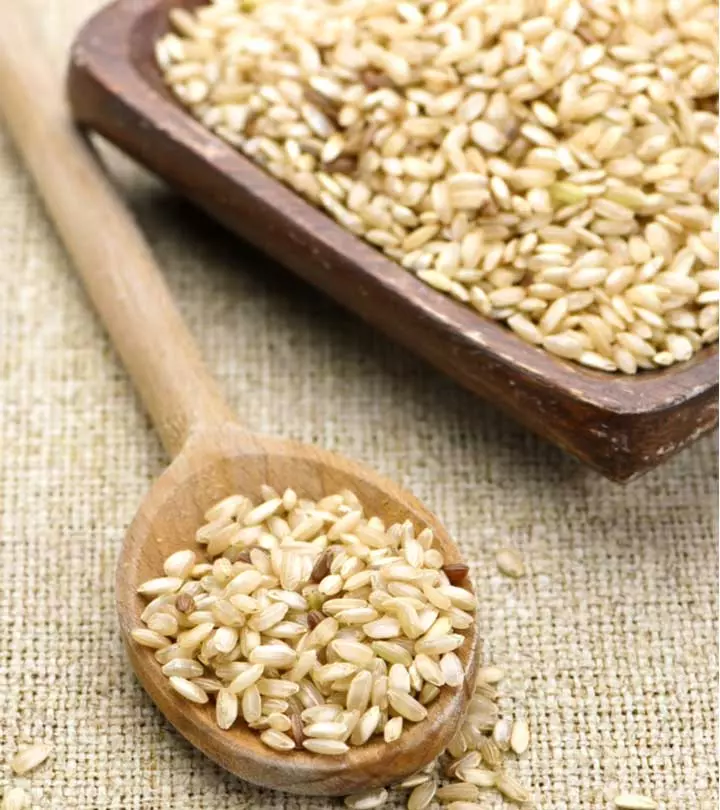




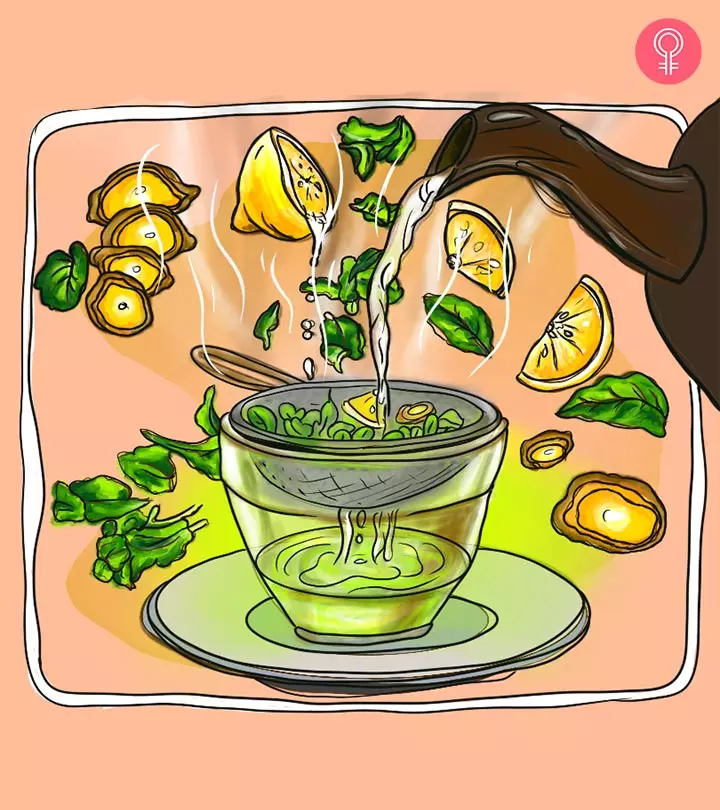
Community Experiences
Join the conversation and become a part of our empowering community! Share your stories, experiences, and insights to connect with other beauty, lifestyle, and health enthusiasts.